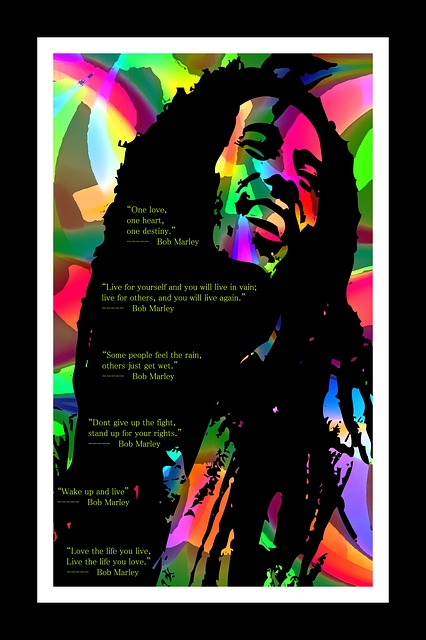Robert Nesta Marley, universally known as Bob Marley, was more than just a musician. He was a Jamaican reggae singer, guitarist, and songwriter who left an indelible mark on the world of music and culture. Born on February 6, 1945, in Nine Mile, Jamaica, Marley’s life and career were marked by remarkable achievements and a profound impact on the global stage.
Marley’s musical journey began in 1963 when he formed the group Teenagers with Peter Tosh and Bunny Wailer. This group eventually evolved into The Wailers, a name that would become synonymous with the reggae genre. Their debut album, “The Wailing Wailers,” released in 1965, included the iconic song “One Love,” which propelled them to international recognition. The world was introduced to Marley’s distinctive vocal style and songwriting abilities, setting the stage for his meteoric rise.
What set Bob Marley apart was not just his musical talent but also the powerful messages embedded in his songs. His music carried messages of love, unity, and social justice, making it more than just music; they were anthems of change and hope. Marley’s contribution to music transcended boundaries and increased the visibility of Jamaican music on a global scale. His unique fusion of reggae, ska, and rocksteady created a sound that resonated with audiences worldwide.
Beyond his musical prowess, Marley was a Rastafarian icon who infused his music with spirituality. He inspired others to explore their own spiritual journeys, and his songs became a source of solace and reflection for many.
Bob Marley was not just an artist; he was also an advocate for social change. He was a vocal supporter of democratic social reforms and was unapologetic in his stance on the legalization of marijuana. His support for Pan-Africanism and his outspoken nature made him a symbol of resistance and change.
In 1976, Marley faced a life-threatening event when he survived an assassination attempt at his home, believed to be politically motivated. This incident only strengthened his resolve to continue using his music as a platform for change.
Throughout his career, Marley and his band underwent significant transformations. They started as The Wailers and later became known as Bob Marley and the Wailers after signing with Island Records. Their albums “Catch a Fire” and “Burnin'” (both released in 1973) gained international attention, and Marley’s breakthrough came with hits like “No Woman, No Cry” and “I Shot the Sheriff.”
Albums like “Natty Dread” (1974) and “Rastaman Vibration” (1976) solidified his status as a global reggae superstar. In 1977, he released “Exodus,” an album that showcased his versatility by incorporating elements of blues, soul, and British rock. It enjoyed widespread commercial and critical success, further cementing Marley’s place in music history.
Tragically, in 1981, Bob Marley lost his battle with acral lentiginous melanoma, a form of skin cancer. Shortly before his passing, he was baptized into the Ethiopian Orthodox Church. His fans around the world expressed their grief, and he received a state funeral in Jamaica.
Even after his death, Bob Marley’s music and message continued to resonate with people worldwide. His greatest hits album, “Legend,” released in 1984, became the best-selling reggae album of all time. With estimated sales of more than 75 million records worldwide, Marley ranks among the best-selling music artists of all time.
Jamaica posthumously honored him with the Order of Merit, and he was inducted into the Rock and Roll Hall of Fame in 1994. Rolling Stone ranked him No. 11 on its list of the 100 Greatest Artists of All Time and No. 98 on its list of the 200 Greatest Singers of All Time. His enduring influence is also reflected in his Grammy Lifetime Achievement Award, a star on the Hollywood Walk of Fame, and induction into the Black Music & Entertainment Walk of Fame.
Bob Marley’s impact on music, culture, and advocacy for social change is undeniable. He not only left behind a rich musical legacy but also inspired generations with his messages of love, unity, and justice. Bob Marley’s name continues to be synonymous with reggae music, and his timeless music will forever be a source of inspiration for people around the world.
To read Bob Marley quotes visit his quotes page
 Tiny Panda Quotes
Tiny Panda Quotes
